Black pepper, also known as the ‘King of Spices’, is a flowering vine that is widely cultivated for its fruit which is red in color when it is right time to pluck is dried, it is used as a spice and seasoning. It has a pungent, spicy flavor and aroma that can enhance the taste of any dish. Black pepper is native to the Malabar region in India and has been grown and traded for
thousands of years by foreigners. Kerala, a state in southern India, is known as the ‘Land of Spices’ and is one of the major black pepper producing regions in India. The tropical climate and rich soil of Kerala provide ideal growing conditions for black pepper, and the state accounts for over 90% of India’s black pepper production. Black pepper is deeply ingrained in the culture and cuisine of Kerala, and it is often referred to as the ‘black gold’ of the state. The spice has played a significant role in the history and economy of Kerala, and it continues to be a valuable commodity in the global spice market today.
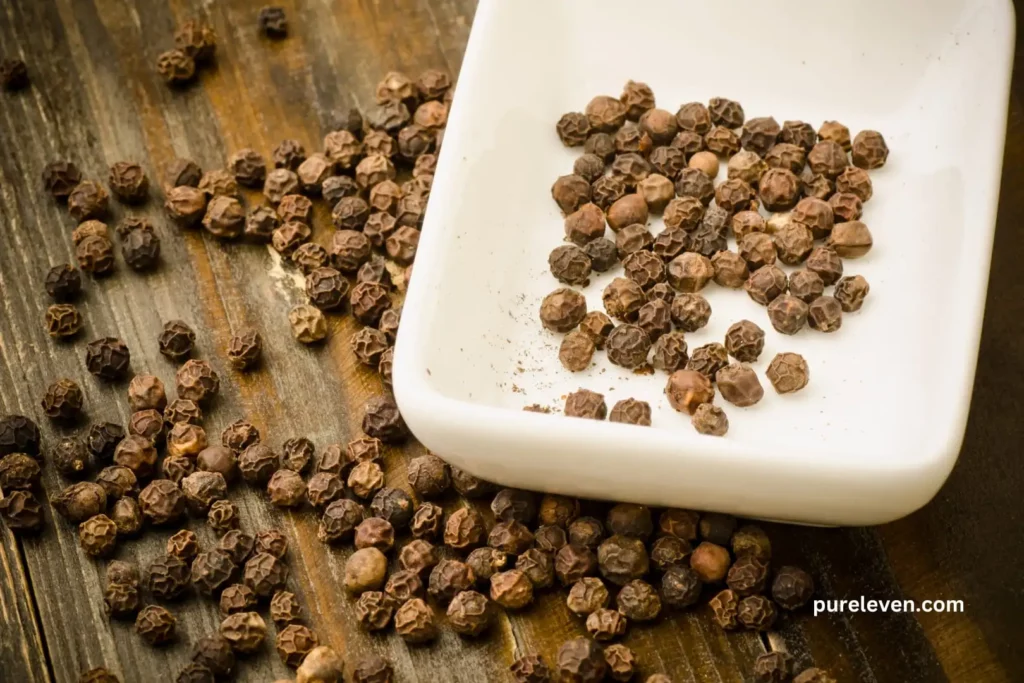
A Brief History of Indian Black Pepper
The history of black pepper in India dates back to ancient times. It is believed that black pepper was first cultivated in the Malabar region of India over 2000 years ago. From there, it spread to other parts of the world, including Europe, the Middle East, and Southeast Asia. In the 15th century, Portuguese traders arrived in India and established trade links with the Malabar region, where they discovered black pepper. They began exporting black pepper to Europe, where it became a highly prized spice, used for its medicinal properties and as a flavoring agent.
The British East India Company, which arrived in India in the 17th century, also played a significant role in the evolution of the black pepper industry in India. The company began exporting black pepper to Europe and other parts of the world, leading to a surge in demand for the spice. Today, India is the largest producer, consumer, and exporter of black pepper in the world, accounting for over 45% of the global production. Kerala, Karnataka, and Tamil Nadu are the major black pepper producing states in India, with Kerala being the largest producer, contributing over 70% of the country’s total production. The black pepper industry in India has come a long way from its ancient origins and continues to play a crucial role in the economy and culture of the country.
1. Climate and weather conditions:
- Unfavorable weather conditions such as excessive rainfall or drought can lead to a decline in black pepper production, resulting in a shortage of supply and an increase in prices.
- Temperature and humidity levels are crucial factors that affect the quality and yield of black pepper crops.
- Natural disasters such as floods and cyclones can also cause significant damage to
2. Production and supply:
- The production and supply of black pepper depend on factors such as land availability,
labor availability, and the use of advanced farming techniques. - Fluctuations in production due to factors such as crop failure, pest attacks, or labor
shortages can lead to a shortage of supply, thereby driving up prices. - Storage and distribution methods, as well as the presence of intermediaries, can also
impact black pepper prices.
3. Demand and consumption:
- Black pepper is a widely used spice in Indian cuisine and is also in high demand globally.
- Changing consumer preferences and increased demand from other industries such as
cosmetics and medicine can impact the demand for black pepper, and subsequently, its
price. - Import and export policies and the availability of substitutes also play a role in
determining demand and consumption patterns.
4. Government policies and regulations:
- The Indian government regulates the export and import of black pepper, which can
impact its availability and price. - Minimum support price (MSP) and subsidies for farmers can affect the supply of black
pepper, which can, in turn, influence its price. - Government policies regarding quality standards and safety regulations can also impact
the demand and price of black pepper in the market.
Demand and consumption of Black Pepper in Indian and foreign Market
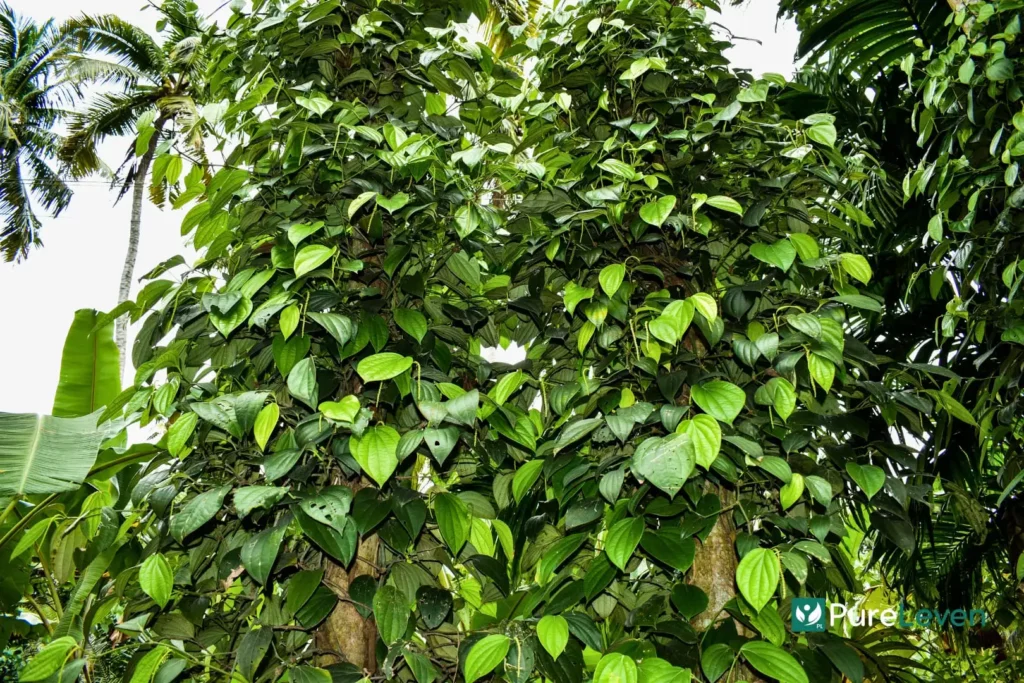
In India, black pepper is an essential ingredient in many regional cuisines, and it is also used in the preparation of Ayurvedic medicines. According to the Spices Board of India, the domestic demand for black pepper in the country was around 50,000 metric tons in 2020, and it is projected to increase in the coming years.
In addition to that, India is also a significant exporter of black pepper, accounting for over 30% of the global export of the spice. According to the Ministry of Commerce and Industry, the export of black pepper from India was valued at over 1.6 billion Indian Rupees in 2020-21, with the major export destinations being the USA, Vietnam, and Malaysia.
The demand for black pepper in the foreign market is also growing steadily, driven by its use in the food and beverage industry, cosmetics industry, and pharmaceutical industry. According to a report by Grand View Research, the global black pepper market size was valued at USD 4.6 billion in 2020, and it is projected to reach USD 6.2 billion by 2027, growing at a CAGR of 4.2% from 2021 to 2027.
Government Policies & Regulations on Black Pepper in India
The Spices Board of India, a government agency responsible for the development and promotion of the Indian spice industry, formulates policies and implements regulations to ensure the quality, safety, and competitiveness of black pepper and other spices in the market.
Indian government has set up quality standards for black pepper, and all exports must meet the prescribed standards to ensure compliance with international regulations. The Food Safety and Standards Authority of India (FSSAI), another government agency, monitors the safety of spices, including black pepper, and sets guidelines for the use of additives, preservatives, and other chemicals in food products.
The Indian government also regulates the export and import of black pepper through various policies and initiatives. For instance, the government offers subsidies and financial assistance to farmers to promote the production of black pepper and other spices. The Minimum Support Price (MSP) scheme, launched by the government, ensures that farmers receive a fair price for their crops, thereby stabilizing prices and ensuring a steady supply of black pepper in the
market.
Furthermore, the government has introduced the Spice Development Fund (SDF) to support the development and growth of the spice industry in the country. The fund provides financial assistance for various activities, including research and development, market development, infrastructure development, and quality improvement.
International trade and competition affect price of black pepper in India
International trade of black pepper is highly competitive, with major exporting countries like Vietnam, Indonesia, and Brazil competing with India for market share. These countries have a competitive advantage in terms of production costs and yield, leading to fluctuations in the global price of black pepper.
In addition to the competition, the exchange rate fluctuations, trade policies, and geopolitical developments also impact the price of black pepper in the Indian market. For instance, changes in the exchange rate of the Indian rupee against major currencies like the US dollar and euro can affect the competitiveness of Indian black pepper in the global market, leading to
fluctuations in prices.
Conclusion
To sum up, the price of black pepper in the Indian market is influenced by several factors, including production and supply, demand, weather conditions, government policies and regulations, and international trade competition and changes in global prices can impact the Indian market. However, initiatives such as sustainable production practices, fair government policies, removal of trade barriers, and promoting quality, safety, and sustainability can help ensure a stable and consistent price for black pepper in the Indian market.
Our Blogs are Amazing
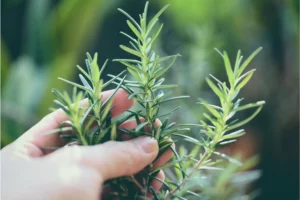
Journey To Wellness: The Key Benefits Of Rosemary Herb
Rosemary herb is well known for its fragrant aroma and needle like leaves. Its popularity
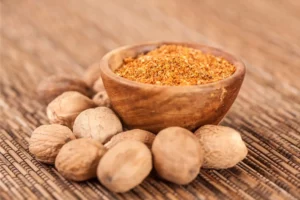
What is The History Of Nutmeg? A Journey Through Time
The history of nutmeg covers centuries and continents, resulting in a captivating trip through time.
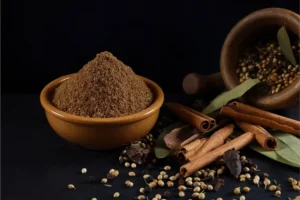
Unique Taste of India: Indian Spices Included In Garam Masala Powder
The significant use of spices in the Indian dishes is recognised for its rich and

